Literary, Historical, and Archival Perspectives
by Josh Roiland, UNC Wilmington Department of English
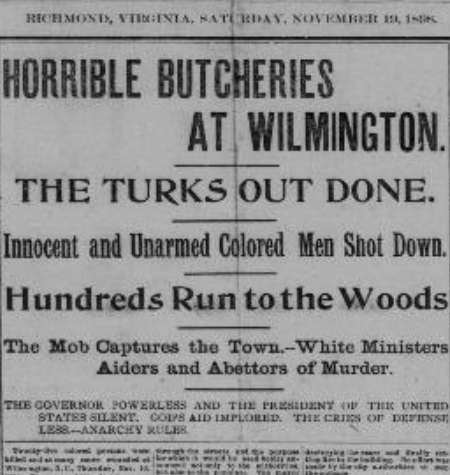
For NCLR‘s call for pedagogical materials involving North Carolina literature, I created a blended syllabus that contains elements from two different courses that I teach in the English Department at the University of North Carolina Wilmington. Both courses focus on the 1898 Wilmington Massacre, but each class approaches the topic in different ways. ENG 205: Introduction to Literary and Cultural Studies aims to introduce new English majors to various ways to interpret and understand both literary and historical texts. Our primary text for this class is Charles W. Chesnutt’s 1901 novelization of the massacre, The Marrow of Tradition. ENG 363: Studies in Nonfiction comes with the subtitle Recovering and Writing: 1898 Wilmington Massacre. This course immerses students in the prelude, execution, and aftermath of the massacre via David Zucchino’s 2021 Pulitzer Prize winning history Wilmington’s Lie: The Murderous Coup of 1898 and the Rise of White Supremacy. Once students have mastered this history, they use that knowledge to conduct primary research of people, places, and events as captured in the seven surviving issues of the Wilmington Daily Record, the only Black daily newspaper in the country at the time. Their archival research and subsequent annotations will be included in a book about the Daily Record to be published by UNC Press.
The blended course presented here is divided into three five-week units, each with a distinct approach to the 1898 Wilmington Massacre. The first five weeks are devoted to literary analysis. We read The Marrow of Tradition and analyze many of its literary elements. The middle unit focuses on understanding the events of 1898 through historical and cultural lenses. We read Wilmington’s Lie as well as several primary historical texts from the time to better understand the facts and feel of the time and place. Finally, the final five-week unit immerses students in primary archival research. They work with the award-winning author John Jeremiah Sullivan and writer Joel Finsel of the nonprofit The Third Person Project to identify, research, and recover stories of Black Wilmington before the massacre. The significance of this blended course is that it allows students three distinct ways to engage with North Carolina literature and history and provides them with research models they can use as they advance their academic careers.
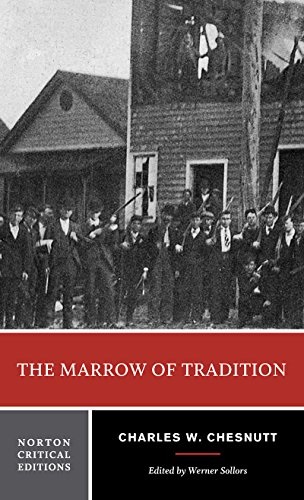
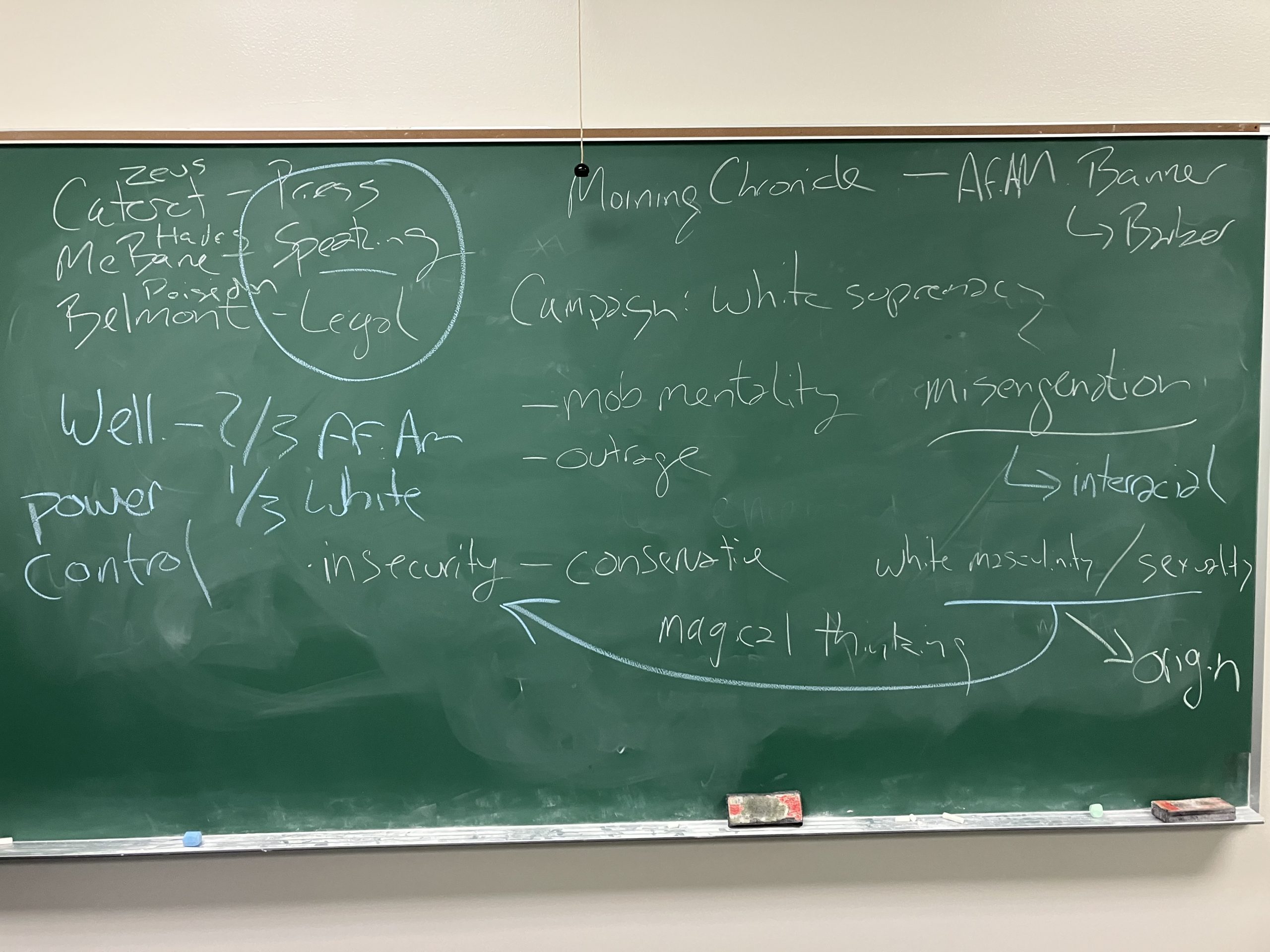
Weeks 1–5: The Marrow of Tradition:
Literary Analysis
Charles W. Chesnutt was not present during the 1898 Wilmington Massacre. But he traveled to the city shortly thereafter and began researching the event. The result was his novelization of the events, The Marrow of Tradition (1901). This text lends itself well to literary analysis because of the numerous characters, themes, and plots. It has the added benefit of introducing UNCW students to an event that many know nothing about even though many of them are from the area. . . .
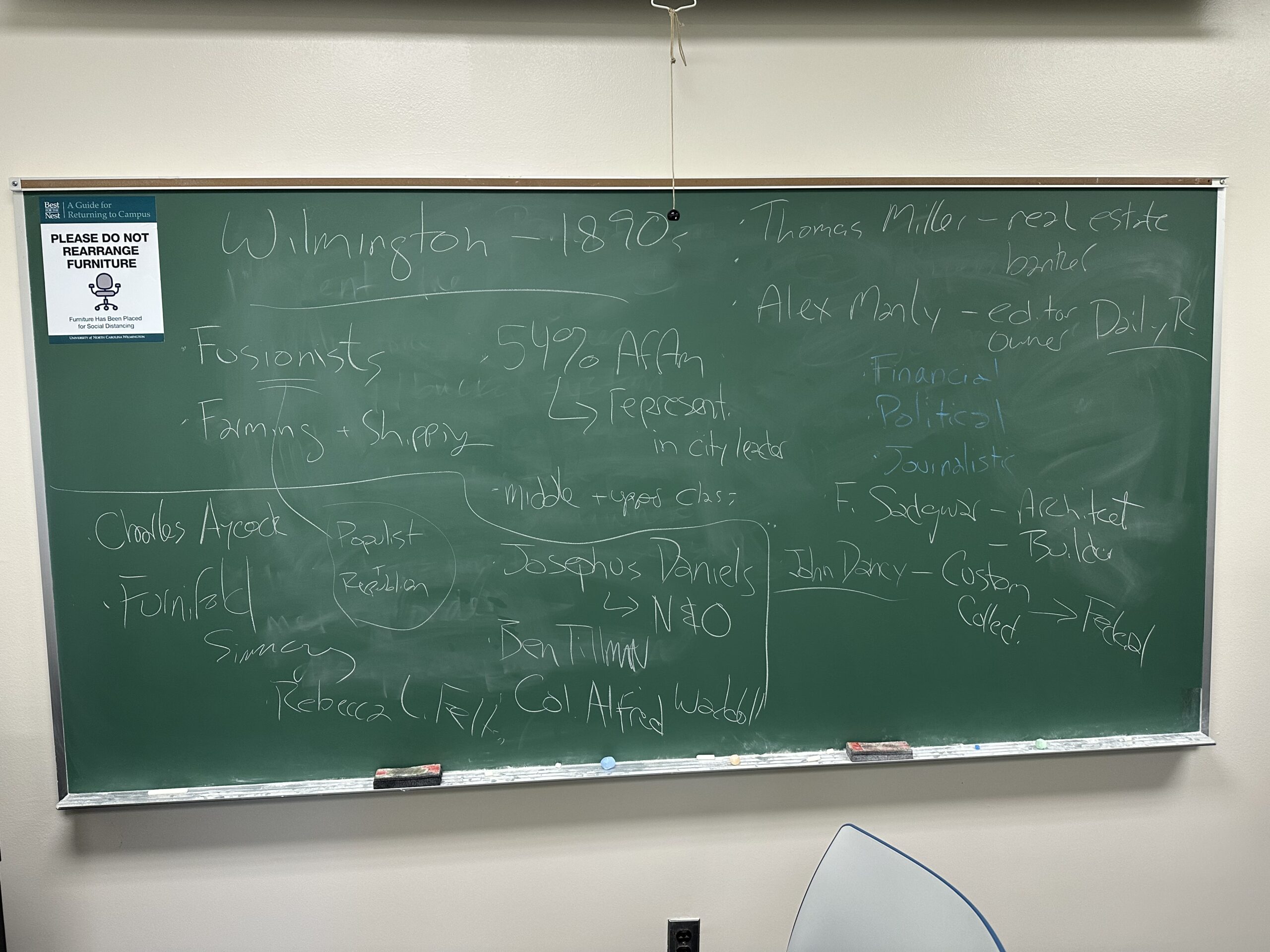
Weeks 6–10: Wilmington’s Lie:
Historical and Cultural Analysis
David Zucchino’s Wilmington’s Lie (2020) contextualizes the 1898 massacre and coup for the students. They learn the history of the city and the social and political forces that coalesced after the Civil War to produce the largest city in the state of North Carolina by 1898, a city that was 56% African American and had a multiracial city government and police force. As the students also learn, it’s the only city in the history of the United States to be taken over by a militant coup. The added benefit of using Wilmington’s Lie is that Zucchino follows the historical arc of the city after the massacre and coup. These chapters are particularly shocking to students. They learn the lasting effects of Jim Crow, the Grandfather Clause (e.g., there were 126,000 registered Black voters in North Carolina in 1896; by 1902 that number had dropped to 6100), and the perpetual threat of racial violence (e.g., the percentage of Black residents in Wilmington has dropped from 56% in 1898 to 17% today). . . .
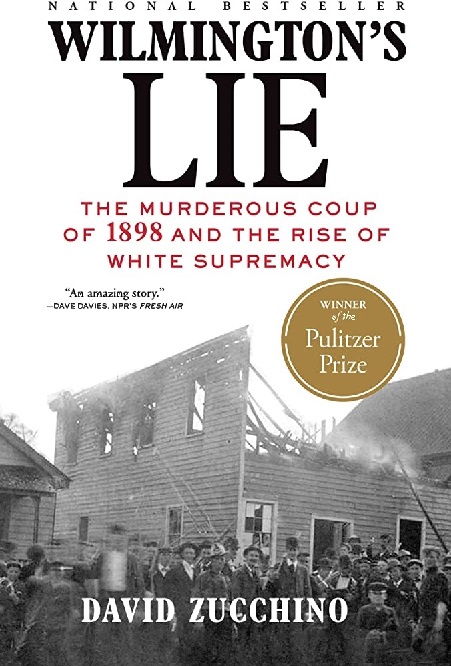
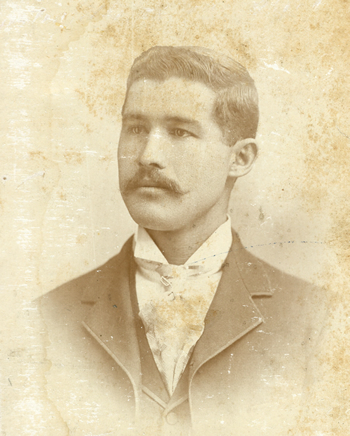
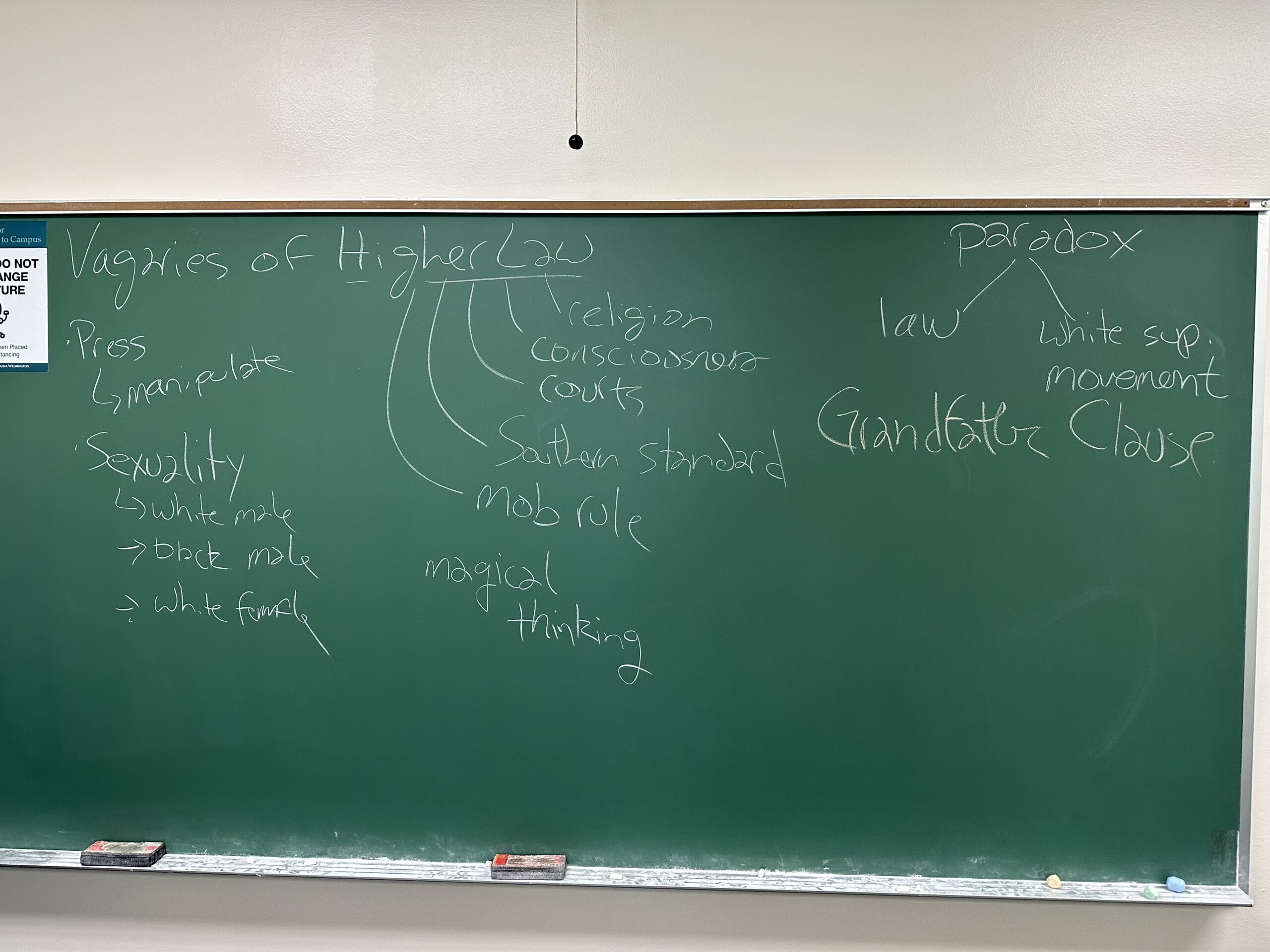
Weeks 11–15: Wilmington Daily Record: Archival Research
The final third of this blended course is actually a years-long project: recovering the history and stories of Black Wilmington before the 1898 massacre. This unit merges the approaches of both the fiction and nonfiction units in that it is focused on storytelling, but those stories are of real residents, businesses, schools, and places of worship. Students will have the unique opportunity to research and recover history through the primary study of the seven surviving copies of the Wilmington Daily Record, the only Black daily newspaper in the US after Reconstruction. This newspaper was central to Wilmington’s Black community formation, protest, and advocacy, and as such it was also the target of white supremacist disinformation campaign, terrorist threats, and, ultimately, destruction during the massacre and coup. . . .
Wrapping up the semester
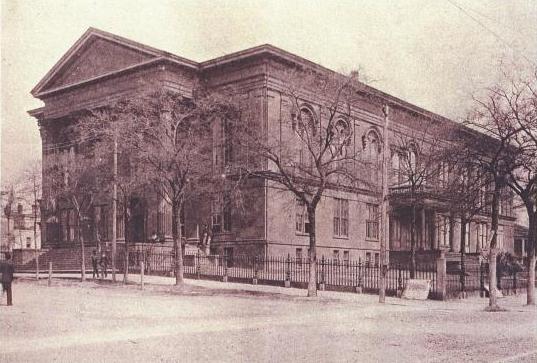
After imagining the massacre and coup in Marrow, reckoning with it in Wilmington’s Lie, and finally, recovering the stories in the archive unit, I conclude with a private tour of historic sites in 1898 Wilmington. These trips are incredibly powerful: these UNCW students get to stand in the actual spaces and bear witness to what happened in this city 125 years ago. For educators outside of this port city, soon there will be virtual tours they can give their students. . . .
Josh Roiland is an Assistant Professor of journalism in the Department of English at UNC Wilmington. He has a PhD in American Studies from St. Louis University. He researches and teaches courses on the history and practice of literary journalism and the historical relationship between journalism and American politics. He has taught at the University of Maine, University of Notre Dame, and Case Western Reserve University.